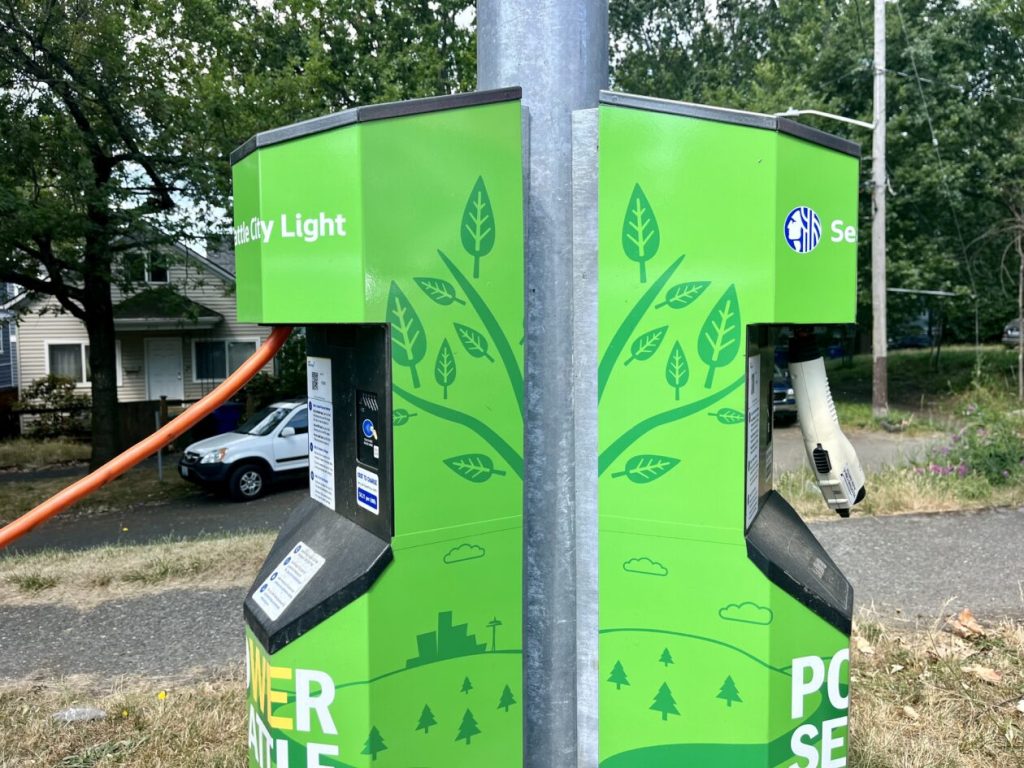The City of Seattle recently approved a resolution opposing Initiative 2117, a measure on next month’s ballot that aims to eliminate a statewide program funding climate change efforts. At least 11 other Washington cities, the Port of Seattle, and King County have also passed similar declarations. Initiative 2117 targets the state’s Climate Commitment Act, a 2021 law creating a cap-and-invest market for carbon pollution permits. Supporters of the initiative argue that the act constitutes a hidden gas tax that raises prices, while opponents defend the act’s importance in funding programs for the clean energy transition.
Mayor Bruce Harrell proposed the resolution, which passed 7-0 with one abstention. The resolution highlighted specific programs in Seattle funded by the Climate Commitment Act, such as energy-efficient heat pumps in low-income housing, utility bill credits for low-income customers, and electric vehicle charging infrastructure for city fleets. Future impacts would also include the loss of funding for EV charging, clean energy, grid improvements, salmon recovery, energy retrofits, urban forestry, and workforce development for green jobs. Councilmember Maritza Rivera emphasized the importance of continuing efforts to combat climate change and the potential setbacks of eliminating funding.
Over 500 organizations, including Microsoft, Amazon, bp America, and REI, have opposed Initiative 2117. Additionally, 17 of the state’s Tribal Nations have joined the anti-coalition. The No on I-2117 campaign has raised $14.7 million, compared to the $7.1 million raised by the Let’s Go Washington campaign supporting the initiative. The funds for Let’s Go Washington are also used to back three other ballot initiatives, all originating from hedge fund manager Brian Heywood. Despite support from trade groups like the Building Industry Association of Washington and the Washington Retail Association, no local governments have endorsed Initiative 2117.
The Climate Commitment Act created a cap-and-invest market where refineries, utilities, and other entities bid on carbon pollution permits in quarterly auctions. The funding generated supports a range of programs to facilitate the transition to clean energy. However, supporters of Initiative 2117 argue that the act leads to higher costs for Washington residents, such as increased pump prices and electric bills. The resolution passed by the Seattle City Council calls for the continuation of these efforts to combat climate change and highlights existing and potential impacts of disbanding the Climate Commitment Act.
In addition to Seattle, at least 11 other Washington cities as well as organizations like the Port of Seattle and King County have passed declarations opposing Initiative 2117. The resolution proposed by Mayor Bruce Harrell and approved by the City Council emphasizes the importance of maintaining funding for programs supported by the Climate Commitment Act. Supporters of the initiative argue that the act imposes a hidden gas tax on residents, leading to increased prices, while opponents stress the significance of these programs in driving the clean energy transition and combating climate change. The resolution also calls attention to the potential risks and setbacks that could arise from eliminating funding for these critical initiatives.


